Jade Varden's Blog, page 7
September 12, 2015
Saltwater Secrets: Take a Virtual Tour of Brenna’s Island
If you’ve read “Song of the Sea,” you know that a lot of my “Saltwater Secrets” trilogy takes place in Matinicus, Maine. Virtually explore Brenna’s town to get a closer look at this small island that’s so full of secrets. When “Death and the Deep” comes out this month, you’ll discover more about the darkness hiding on the shores of Matinicus.
 The official post office
The official post office
 Some of the native plant life
Some of the native plant life
 The waves that surround the island will haunt Brenna in "Death and the Deep"
The waves that surround the island will haunt Brenna in "Death and the Deep"
 There are many houses along the coast on the island, just like the one Brenna lives in
There are many houses along the coast on the island, just like the one Brenna lives in
 New secrets will wash up on the shores of the island in "Death and the Deep"
read a sample now!
New secrets will wash up on the shores of the island in "Death and the Deep"
read a sample now!
 The official post office
The official post office Some of the native plant life
Some of the native plant life The waves that surround the island will haunt Brenna in "Death and the Deep"
The waves that surround the island will haunt Brenna in "Death and the Deep" There are many houses along the coast on the island, just like the one Brenna lives in
There are many houses along the coast on the island, just like the one Brenna lives in New secrets will wash up on the shores of the island in "Death and the Deep"
read a sample now!
New secrets will wash up on the shores of the island in "Death and the Deep"
read a sample now!
Published on September 12, 2015 05:30
September 10, 2015
Writing 101 Redux: The Epilogue, Good or Evil?
It's an epic debate, and the lines have been drawn. Where do you stand in the epilogue argument?

Before you make up your mind, read this Throwback Thursday Writing 101 and then decide!

Before you make up your mind, read this Throwback Thursday Writing 101 and then decide!
Published on September 10, 2015 05:30
September 9, 2015
Writing 101: Being Afraid
Are you afraid of your own writing? If you’ve ever stared too long at a blank page, or re-read the same paragraph four times because you just weren’t sure about it, or put off finishing that chapter for another day, you may be spending too much of your time being afraid. Lots of writers all secretly have the same fear, but I’m about to expose it once and for all: bad writing. Have you found yourself being afraid of writing badly, too?
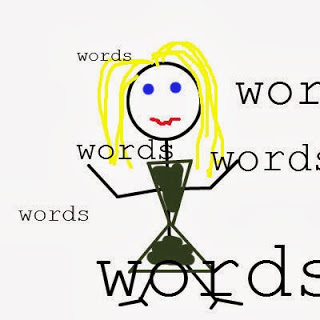
Hippopotomonstrosesquippedaliophobia
Fear of long words is a real phobia, but fear of writing is something that possibly strikes only authors. Writing a book encourages you to second-guess every sentence you put down. Bloggers like me get on the Internet and scream about editing, editing, editing. You get told to choose just the right words and avoid the wrong ones, to double-check dialogue and keep your narrative voice strong. And when you’ve got to think about all that, it’s absolutely natural to start being afraid of just totally writing the wrong thing.
If you start second-guessing yourself before you ever start writing, you might experience everything from writer’s block to anxiety. You might be so afraid of writing badly that you end up not writing anything at all. It’s much easier to simply not write, and in this way not risk the failure and inevitable shame of writing something awful, right?
It’s always easier to not do something, to give up, to not try. But it actually feels worse. If you want to write and let fear stop you from writing, you’re cheating yourself and all those potential readers out there. Because here’s the thing: it’s okay to write badly. In fact, you should go ahead and embrace the fact that you are definitely going to write badly...because you will.
I can’t stress it enough: first drafts are meant to be ugly. This is where you just vomit words on the page, and to heck with how they’re spelled. You get the ideas out, you start letting the characters move around, you just write and write and write. Most of it, in fact, will be bad. But all those words give you the foundation for a book. Once you start shifting them around and changing them up, all that bad writing will start to take a different form.
Don’t spend your valuable writing time being afraid of bad writing. Allow yourself to write badly. It’s the only way to really get to the good writing that will come later.

Hippopotomonstrosesquippedaliophobia
Fear of long words is a real phobia, but fear of writing is something that possibly strikes only authors. Writing a book encourages you to second-guess every sentence you put down. Bloggers like me get on the Internet and scream about editing, editing, editing. You get told to choose just the right words and avoid the wrong ones, to double-check dialogue and keep your narrative voice strong. And when you’ve got to think about all that, it’s absolutely natural to start being afraid of just totally writing the wrong thing.
If you start second-guessing yourself before you ever start writing, you might experience everything from writer’s block to anxiety. You might be so afraid of writing badly that you end up not writing anything at all. It’s much easier to simply not write, and in this way not risk the failure and inevitable shame of writing something awful, right?
It’s always easier to not do something, to give up, to not try. But it actually feels worse. If you want to write and let fear stop you from writing, you’re cheating yourself and all those potential readers out there. Because here’s the thing: it’s okay to write badly. In fact, you should go ahead and embrace the fact that you are definitely going to write badly...because you will.
I can’t stress it enough: first drafts are meant to be ugly. This is where you just vomit words on the page, and to heck with how they’re spelled. You get the ideas out, you start letting the characters move around, you just write and write and write. Most of it, in fact, will be bad. But all those words give you the foundation for a book. Once you start shifting them around and changing them up, all that bad writing will start to take a different form.
Don’t spend your valuable writing time being afraid of bad writing. Allow yourself to write badly. It’s the only way to really get to the good writing that will come later.
Published on September 09, 2015 05:30
September 8, 2015
Writing 101: Love to Hate?
Many books are written with a hero, or protagonist, and a villain, an antagonist. But somewhere in the middle, there is a special kind of character: the one you love to hate. Now, try writing it.
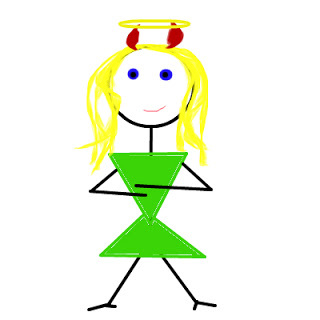
Same Coin
In the comic book world, lines are clearly drawn between good guys and bad guys. Both types of guys are powerful, and you can easily tell which one you’re supposed to be rooting for. But even in the comic book world of clear distinctions, there are characters that you almost start rooting for -- even though they really want to kill the hero of the story. Catwoman is supposed to be a villain, but it’s so easy to hope that things will work out for her anyway. This is a villain you love to hate, or hate to hate. They say that hate and love are two sides of the same coin. So how do you write about them both at once?
Most people are not completely good or completely bad, and so it makes sense to write villains that have some good qualities -- and heroes that have some bad. This is how you get readers to feel both love and hate for a villain, or a hero. A villain who does bad things because they have no other choice, a hero who does wrong to commit good, a character who is both good and bad can inspire both love and hate.
Make characters likable by making them relatable. It helps if characters are funny or clever or good at something -- give them something for readers to admire. This makes it possible to feel love, even for a character who’s doing a lot of bad. When you write a character that readers love to hate, you’re creating characters that feel more like real people...and that’s what all authors want to do.

Same Coin
In the comic book world, lines are clearly drawn between good guys and bad guys. Both types of guys are powerful, and you can easily tell which one you’re supposed to be rooting for. But even in the comic book world of clear distinctions, there are characters that you almost start rooting for -- even though they really want to kill the hero of the story. Catwoman is supposed to be a villain, but it’s so easy to hope that things will work out for her anyway. This is a villain you love to hate, or hate to hate. They say that hate and love are two sides of the same coin. So how do you write about them both at once?
Most people are not completely good or completely bad, and so it makes sense to write villains that have some good qualities -- and heroes that have some bad. This is how you get readers to feel both love and hate for a villain, or a hero. A villain who does bad things because they have no other choice, a hero who does wrong to commit good, a character who is both good and bad can inspire both love and hate.
Make characters likable by making them relatable. It helps if characters are funny or clever or good at something -- give them something for readers to admire. This makes it possible to feel love, even for a character who’s doing a lot of bad. When you write a character that readers love to hate, you’re creating characters that feel more like real people...and that’s what all authors want to do.
Published on September 08, 2015 05:30
September 7, 2015
The Late Bestseller, and a Whale of a Tough Writing Life
Even if you weren't forced to read it in school like most people, you've heard of "Moby Dick." It's one of the most famous stories ever written. And when it was published, it completely tanked. Author Herman Melville was so disillusioned with his novel, he wrote a whole new novel about how bad he felt about it.
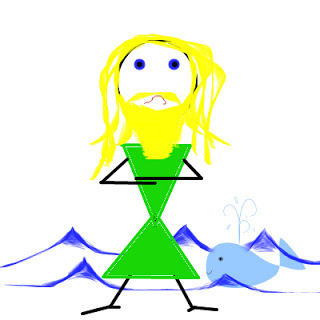
Thar She Blows
How bad did "Moby Dick" do in 1851 when it was published? It didn't even sell the entire first printing order...which was only 3,000 books. That's not many copies for a book that's passed out in schools every single year. Herman Melville was bitterly disappointed by this failure. In fact, he wrote mostly poetry and short stories after his novel about the whale, because he was so sad that so few people purchased it.
Melville wrote a book called "Pierre" after "Moby Dick" fell completely flat. The main character of the book, Pierre, is a writer whose book is very poorly received by fans and critics alike. This was a familiar theme to Melville.
He spend the rest of his career mostly writing poetry, but didn't make a lot of money from it. Melville got a day job, and worked as a customs inspector in New York City. That all happened after "Moby Dick" was published, and failed. In the last years of his life, the book was totally out of print.
After he died, the publishers began printing the book again in hopes that readers would perhaps enjoy it the second time around. Then World War broke out, and the themes in "Moby Dick" resonated more strongly than ever. Suddenly, critics were paying attention again. It has since become the subject of study and is one of history's most highly-acclaimed books. Maybe some bestsellers are just late bloomers, that’s all.

Thar She Blows
How bad did "Moby Dick" do in 1851 when it was published? It didn't even sell the entire first printing order...which was only 3,000 books. That's not many copies for a book that's passed out in schools every single year. Herman Melville was bitterly disappointed by this failure. In fact, he wrote mostly poetry and short stories after his novel about the whale, because he was so sad that so few people purchased it.
Melville wrote a book called "Pierre" after "Moby Dick" fell completely flat. The main character of the book, Pierre, is a writer whose book is very poorly received by fans and critics alike. This was a familiar theme to Melville.
He spend the rest of his career mostly writing poetry, but didn't make a lot of money from it. Melville got a day job, and worked as a customs inspector in New York City. That all happened after "Moby Dick" was published, and failed. In the last years of his life, the book was totally out of print.
After he died, the publishers began printing the book again in hopes that readers would perhaps enjoy it the second time around. Then World War broke out, and the themes in "Moby Dick" resonated more strongly than ever. Suddenly, critics were paying attention again. It has since become the subject of study and is one of history's most highly-acclaimed books. Maybe some bestsellers are just late bloomers, that’s all.
Published on September 07, 2015 05:30
September 5, 2015
Saltwater Secrets: Everything You Need to Know
Death and the Deep, Book 2 of the Saltwater Secrets trilogy, is coming out this month! Not current on the trilogy? No worries -- you can find out what you need to know right here, before you get started on the new book.

Catching Up
Death and the Deep occurs just weeks after the end of Song of the Sea, the first installment in the Saltwater Secrets trilogy. Before you get started on the second part of the story, make sure you’re all caught up from the first. Read ahead at will -- there are no major spoilers here!
Who: Brenna Douglas is the main character of the trilogy. She starts out as a pretty normal girl living in Maine and going to High School. Of course, she’s not that at all by the end of the book. What: Brenna’s mother leaves one night, taking Brenna completely by surprise. On her own, Brenna decides to go find her mom...and bring her back.When: Of course, things don’t quite as planned for Brenna. She ends up far away from home, and meets a boy unlike any she’s ever met before. To find out why Dylan isn’t like any boy you’ve ever met, either, you’re going to have to read the trilogy! How: You can read Death and the Deep and get into the Saltwater Secrets story with ease, but you’ll understand a lot more if you start with Book 1, Song of the Sea first. Visit the books page to find all the places you can buy it! Song of the Sea is available in ebook and paperback.
Look for Death and the Deep, Saltwater Secrets Book 2, this month! Keep checking the blog to find out how you can get it for free on the first day of release.

Catching Up
Death and the Deep occurs just weeks after the end of Song of the Sea, the first installment in the Saltwater Secrets trilogy. Before you get started on the second part of the story, make sure you’re all caught up from the first. Read ahead at will -- there are no major spoilers here!
Who: Brenna Douglas is the main character of the trilogy. She starts out as a pretty normal girl living in Maine and going to High School. Of course, she’s not that at all by the end of the book. What: Brenna’s mother leaves one night, taking Brenna completely by surprise. On her own, Brenna decides to go find her mom...and bring her back.When: Of course, things don’t quite as planned for Brenna. She ends up far away from home, and meets a boy unlike any she’s ever met before. To find out why Dylan isn’t like any boy you’ve ever met, either, you’re going to have to read the trilogy! How: You can read Death and the Deep and get into the Saltwater Secrets story with ease, but you’ll understand a lot more if you start with Book 1, Song of the Sea first. Visit the books page to find all the places you can buy it! Song of the Sea is available in ebook and paperback.
Look for Death and the Deep, Saltwater Secrets Book 2, this month! Keep checking the blog to find out how you can get it for free on the first day of release.
Published on September 05, 2015 05:30
September 3, 2015
Writing 101 Redux: Hey, Don't Double-Space
Do you double space? Read today's Throwback Thursday Writing 101 to find out why that's wrong...very, very wrong.
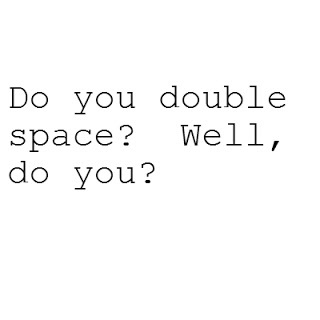
If you double-space your books, maybe this Writing 101 tip will change your mind (and your spacing).

If you double-space your books, maybe this Writing 101 tip will change your mind (and your spacing).
Published on September 03, 2015 05:30
September 2, 2015
Writing 101: Edit Every Sentence
There’s a scene in an old movie I love, where a very pessimistic Billy Crystal is explaining his reading habits to Meg Ryan. He always reads the end of a book first. Readers might do anything, and you don’t know what it is. I used to open books to a page near the middle and see if I liked what I saw, back when books were made with paper (so long ago). That’s why as an author, you’ve got to edit every sentence. Because no matter which one your reader looks at, you need it to be good...otherwise, maybe it’s the only one they’ll look at.
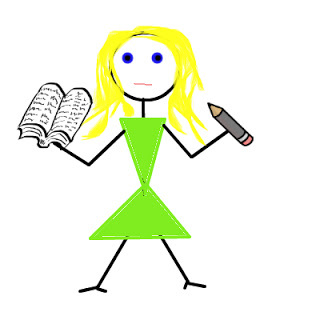
Line By Line
If editing every sentence sounds like a truly tedious chore, that’s because it is. But if you’re going to do a thorough job of editing your book, you’re going to have to read every single word more than once anyway.
So while you’re editing, read each sentence and study it for itself alone. You want your sentences to stand alone, and you want each one to sound great. How tedious is the task sounding now?
You want every single sentence to be strong in its own right, because each sentence has to stand strong in order to stand out. It does take more time to check every single sentence, to perfect each word, but the end result is a very well-edited book. That makes the hard work well worth it.

Line By Line
If editing every sentence sounds like a truly tedious chore, that’s because it is. But if you’re going to do a thorough job of editing your book, you’re going to have to read every single word more than once anyway.
So while you’re editing, read each sentence and study it for itself alone. You want your sentences to stand alone, and you want each one to sound great. How tedious is the task sounding now?
You want every single sentence to be strong in its own right, because each sentence has to stand strong in order to stand out. It does take more time to check every single sentence, to perfect each word, but the end result is a very well-edited book. That makes the hard work well worth it.
Published on September 02, 2015 05:30
September 1, 2015
Writing 101: When Writing is a Job
Someone asked me, the other day, if I have any hobbies. I was surprised when I didn’t have a ready answer. A few years ago, I would have said “writing,” of course. But now, writing is my job. And when anything becomes a job, it’s easy to lose passion for that thing.
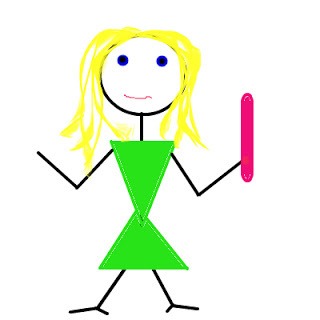
Losing My Religion
Everyone’s passionate about their hobbies. It’s what they do in their free time, what they want to do once all the chores and working is done. So when you write for a living and write for a hobby, it’s easy to start feeling as though you work all the time. That really just leaves one question: how do you fix it?
When you write for a living and self-publish, you’re burning the candle at both ends -- and coming in danger of burning yourself out with all the writing. There are many different ways you can lose your passion for writing, but don’t worry. You can also get it back.
If you’re losing your passion for writing, first you need to remember what it’s like to write just for yourself. Write something for you. Not for publication, not for a beta reader, not for the blog -- just for you. Start a whole new just-you project, if needed, and have fun with it. If you aren’t having fun, you aren’t working on the right project. So write anything that strikes you, because what does it matter? You’re writing just for you, so you can write whatever you want. That’s where you’ll find your passion again.

Losing My Religion
Everyone’s passionate about their hobbies. It’s what they do in their free time, what they want to do once all the chores and working is done. So when you write for a living and write for a hobby, it’s easy to start feeling as though you work all the time. That really just leaves one question: how do you fix it?
When you write for a living and self-publish, you’re burning the candle at both ends -- and coming in danger of burning yourself out with all the writing. There are many different ways you can lose your passion for writing, but don’t worry. You can also get it back.
If you’re losing your passion for writing, first you need to remember what it’s like to write just for yourself. Write something for you. Not for publication, not for a beta reader, not for the blog -- just for you. Start a whole new just-you project, if needed, and have fun with it. If you aren’t having fun, you aren’t working on the right project. So write anything that strikes you, because what does it matter? You’re writing just for you, so you can write whatever you want. That’s where you’ll find your passion again.
Published on September 01, 2015 05:30
August 31, 2015
The Author You Won’t Read About
Every Monday, I write about a different famous author. I like to dredge up some little-known information about them, expose their flaws, dig around in their secrets -- or maybe just talk about how they died. But there’s one author I’m never going to write about, and I’m about to tell you why.
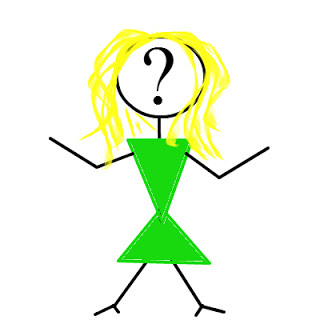
Anonymous
I’ve written about authors that no one read until after their deaths, authors who were anonymous until they kicked the bucket, authors who died broke and even authors who killed themselves. There’s one author you’ll never see me write about: the one who gave up.
There are probably a million authors whom you’ve never heard of, people who wrote books (or started to) but never did anything about it. For every author that I feature on my blog, there are a hundred others that I will never read. Some of those authors, maybe, I wouldn’t want to read anyway. But there are lots of authors out there I can’t read for one reason only: they stopped writing, and gave up on it.
Maybe it doesn’t work out quite as you expected. Maybe you never make a dollar of money from doing it. But maybe one day, your book will become a big hit. Maybe lots of things could happen. If you give up, nothing will. That’s why there are so many authors I’ll never feature on this blog...but maybe one day, I’ll be spilling your secrets on a Monday instead.

Anonymous
I’ve written about authors that no one read until after their deaths, authors who were anonymous until they kicked the bucket, authors who died broke and even authors who killed themselves. There’s one author you’ll never see me write about: the one who gave up.
There are probably a million authors whom you’ve never heard of, people who wrote books (or started to) but never did anything about it. For every author that I feature on my blog, there are a hundred others that I will never read. Some of those authors, maybe, I wouldn’t want to read anyway. But there are lots of authors out there I can’t read for one reason only: they stopped writing, and gave up on it.
Maybe it doesn’t work out quite as you expected. Maybe you never make a dollar of money from doing it. But maybe one day, your book will become a big hit. Maybe lots of things could happen. If you give up, nothing will. That’s why there are so many authors I’ll never feature on this blog...but maybe one day, I’ll be spilling your secrets on a Monday instead.
Published on August 31, 2015 05:30



